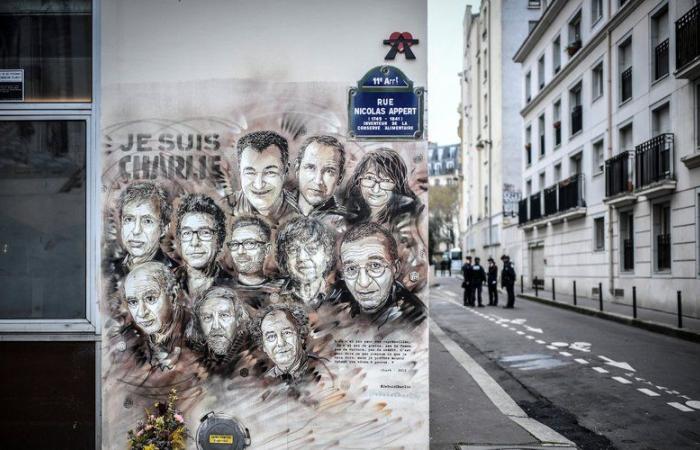
the essential
Ten years after the attack that decimated the satirical newspaper, support for the “Charlie spirit” remains strong in the country, according to our exclusive survey. More worrying, the feeling of erosion of freedom of expression over the past decade is largely anchored in public opinion.
Ten years already, and the French have not forgotten Charlie. Quite the contrary, according to the exclusive OpinionWay survey that we are publishing today as part of our file devoted to freedom of expression. A decade after the killings perpetrated by the Kouachi brothers and which took the lives of Charb, Cabu, Wolinski, Tignous and others, 65% of those questioned say they “feel Charlie”.
A reflex of adherence or sympathy for the values of the satirical newspaper which is also experiencing a revival in public opinion. In 2023, only 58% of French people felt “Charlie”, which constituted the bottom point of a slow erosion measured since the 2015 attack.
The youngest are not Charlie
“These are indeed surprising results,” recognizes Frédéric Micheau, director of opinion studies at the Opinionway institute. For the pollster, the “commemoration effect” is in full force: “During this anniversary, people are immersing themselves in events that shook the country greatly. This should be seen as a sign of personal involvement in the wave of collective emotion that arose in 2015. As a form of fidelity over time in relation to this one.” Basically, the expert analyzes in these results “a more marked support than in recent years for secularism and freedom of expression.”
-
La Dépêche – The French E… by deskwebDDM
However, this general embrace of French irreverence and blasphemy masks certain weaknesses. If those over 50 feel resolutely Charlie, only 62% of those aged 25-34 feel this way and, more worryingly, only 46% of those aged 18-24, the only group of age which, in the majority, does not feel like Charlie (54%). “We measure it regularly: secularism is a complex notion, not always understood, and which the youngest sometimes associate with an offense against religions,” explains our interlocutor, who refers to “the Anglo-Saxon vision of secularism conveyed by social networks.” However, “we must not overinterpret this result. This age group was a child at the time of the 2015 attacks. They therefore did not experience the event directly, they were even protected from it by their parents. For 18-24 year olds, the attack on Charlie Hebdo is considered a more distant historical event.”
The RN and LFI, threats against freedom of expression
The other major lesson from our survey, much more negative, highlights the strong feeling of erosion of freedom of expression in our country over the past ten years. Some 63% of those questioned believe that it has declined in France over the last decade, compared to 26% who believe that the situation has remained unchanged and 10% who think, on the contrary, that it has strengthened. “This feeling is particularly present among workers and employees,” notes Frédéric Micheau. “It is the idea that we can no longer say what we could say before. The idea that political correctness is everywhere and that Everyone’s voice doesn’t count.” And the specialist cites, as recent illustrations of this groundswell, the Yellow Vest movement of 2018 or the power’s use of article 49.3 of the Constitution to ratify unpopular reforms.
In this game of turning everything upside down, nothing, or almost nothing, is spared: social networks, news channels, like religions, all these “items” are considered negatively. The political field is no exception to the rule: 64% of those questioned consider that the far right threatens freedom of expression. A proportion which even rises to 73% on the far left side. Surprising for movements which nevertheless claim an “anti-system” positioning? “These two blocs are in a logic of confrontation which is very brutal and which the majority of people reject, sweeps Frédéric Micheau. It is because of this degraded perception that the RN and even more LFI are considered today as threats for freedom of expression.”




